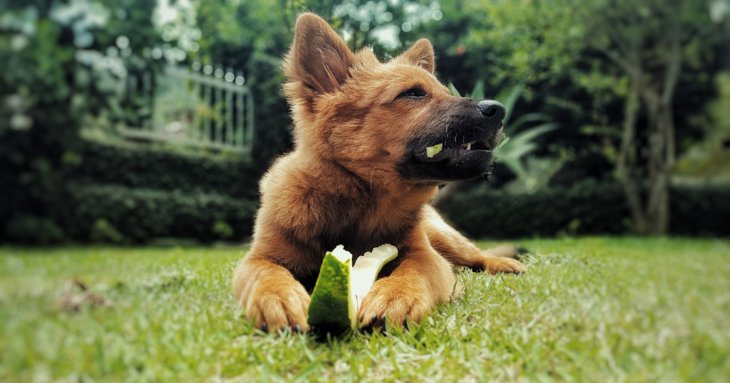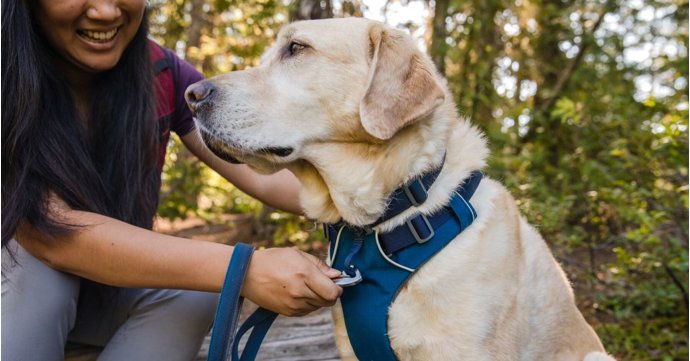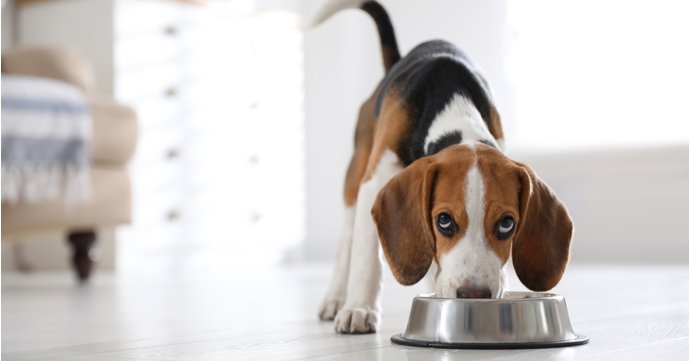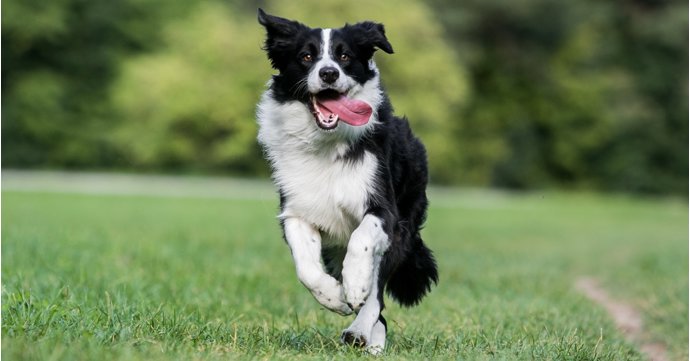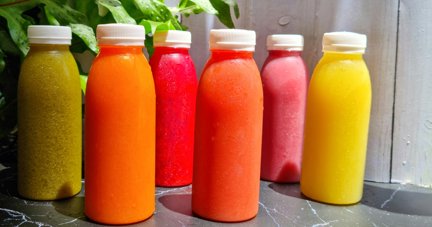We all know our four-legged friends love their meaty treats, with most dog food brands basing their meals around animal derivatives, such as beef, lamb, poultry and fish.
But while meats are generally good sources of protein for our pets, dog owners should consider foods that contain a proportion of vegetables, vitamins and minerals to meet their pooch’s nutritional needs – according to local raw food provider, Cotswold RAW.
SoGlos caught up with the leading pet food business to talk all things food, from the benefits of feeding your dog veggies to the toxic fruits that pups should avoid.
About the expert – Cotswold RAW
Specialising in producing raw food for dogs, Cotswold RAW is an independent, family-run business that uses local meats, seasonal produce and herbal supplements to create its BARF- or Biologically Appropriate Raw Food-approved recipes.
The company serves up tasty and nutritious doggy dinners, as well as natural treats and frozen meaty bones, from its base near Evesham – offering a home delivery and subscription service to share its raw food menu with dogs across Gloucestershire and beyond.
Dogs are considered to be carnivores. What exactly does this mean when it comes to their diet?
Dogs evolved as hunters. Their teeth, jaws and digestive system are all designed to operate on an entirely meat-based diet, containing very few carbohydrates and almost no grain. So, they’re classified as carnivores.
However, being a member of the Carnivora family doesn’t necessarily translate into behaviour or feeding preferences. After all, panda bears are part of the same family and they eat bamboo shoots!
It’s more accurate to say that, just like us, domestic dogs are omnivores. Unlike true carnivores, dogs don’t have a high nutritional requirement for the amino acid taurine, and can manufacture their own arachidonic acid and vitamin A, which straight-up carnivores get from food sources.
In what ways are fruits and vegetables good for dogs?
Vegetables are a natural source of antioxidants, vitamins, phytonutrients, fibre and trace minerals, so adding a small amount of vegetables – say, 20 per cent – can enrich their diet.
While 100 per cent meat diets have adequate levels of fat and protein, they can be lacking in important vitamins and minerals like omega 6, magnesium and vitamins B1, D and E.
Carrots, for example, are the richest sources of vitamin A among commonly consumed vegetables – as well as nourishing the optic nerve and improving eye health; while broccoli is a fantastic source of chromium, with anti-cancer effects; and spinach contains twice as much iron as most other greens, offering a rich source of antioxidants as well as fibre, calcium and potassium.
What are the arguments against giving your dog fruit and veg?
Dogs are not good at digesting complex carbohydrates, such as grains and starch – so it’s important to use more starchy vegetables, like squash, beetroot, carrots and parsnips, more sparingly.
These kinds of vegetables are controversial as, being starchier, they’re not strictly required in a dog’s diet – but we can take the simple view that humans don’t ‘need’ chocolate, yet we might enjoy it from time to time and it has some useful nutrients, if you choose the right sort.
Too much carbohydrate is undoubtedly a cause of canine obesity, but your dog will probably thank you for introducing a bit of variety into their diet.
Are there any fruits or vegetables that dogs absolutely shouldn’t have?
With the increase in festive food and sweet cakes, it’s very easy for your dog to accidentally eat something toxic. Avoid grapes, including sultanas and raisins; onions and garlic; and avocados – they’re all toxic to dogs!
Can you tell us more about Cotswold RAW’s 80/20 range?
At Cotswold RAW, our adult active range of raw dog food follows the 80:20 rule – 80 per cent meat and raw meaty bones, with 20 per cent fresh, seasonal fruit and vegetables, plus herbs. We don’t use any filler or grain and absolutely no artificial additives or preservatives, either.
We also offer our Butcher’s Block meals as a single protein range, which contains no vegetables, only raw meat, bone and offal. Butcher’s Block is designed to be fed as part of a complete balanced diet or part of a supplement though, whereas our 80/20 recipes are complete – meaning they provide all the nutrients that dogs need.


